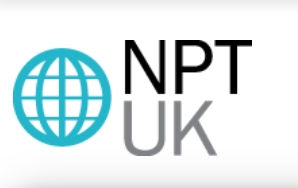
Financial Planners told how to build firm through philanthropy

Financial Planners have been told how they can build their practice through philanthropy.
Clare Brooks, chief executive of NPT-UK and Caroline Totterdill, head of philanthropy at Macmillan Cancer Support, presented to delegates in a session covering a range of relevant topics for planners related to philanthropy.
Ms Brooks described herself as a passionate advocate of donor-advised funds for over 15 years.
{desktop}{/desktop}{mobile}{/mobile}
Ms Brooks spoke about four key areas:
• why philanthropy is a part of Financial Planning and not just for the 'uber wealthy'
• how tax enhances giving
• the typical structures people use
• how you can raise the topic with a client.
In the UK there are 164,000 charities and 500,000 community groups and the charitable sector is bigger than energy and agriculture at nearly £11bn, delegates heard.
She told delegates: “It may seem counterintuitive to you to get clients to give.
“It may seem strange to talk about the business of giving but you are an essential component in a giving process.
“I think there’s a professional duty to talk to your clients about philanthropic giving.
“Clients want to give a lot more than you think. If philanthropy is done well everyone wins, advisers, the charities, the clients.”
She said they want to know about options and plans. She spoke about gift aid and tax advantages
Gift of shares is vastly underused and underestimated benefit, with a break on capital gains and tax relief, she told delegates.
Ways to give that were outlined included direct, donor advised funds, or a foundation.
Ms Brooks said: "One of the most popular giving vehicles is the Donor–Advised Fund (DAF) which is similar to a personal foundation but without the administrative burden or cost. An easy way to think about a DAF is like a charitable savings account – a donor contributes to the fund as frequently as they like and then recommends grants to their favourite charity when they are ready.
"DAFs are not only for the HNWI though -- they also allow people of more modest means to both simplify and maximize their giving. UK tax reliefs include Gift Aid, minimizing capital gains tax on gifts of shares, and additional tax relief on charitable gifts for higher rate tax payers.
"Almost three to one, DAFs are more popular in the USA than private foundations – although clients may sometimes use both for their giving, particularly since DAFs allows the client to remain anonymous.
"While DAFs are great resources for philanthropists, the philanthropic conversation is proving to be a great tool for the financial planner."
Ms Brooks, who is Chair of NESsT-UK, a social enterprise fund for Central and Eastern Europe and Latin America, said: "..."
Ms Brooks most recently served as CEO of the Australian Communities Foundation based in Melbourne, and prior to that she worked as Director of Philanthropy for Community Foundation Network.
During her career she has also worked for the Charles Stewart Mott Foundation of the United States, and with one of the first post-communist Czechoslovak foundations, the Civic Forum Foundation.
Ms Brooks is also board member of the Food Education Foundation UK and advises on a number of advisory committees including the Community Foundation of Singapore.
Ms Totterdill has worked in the voluntary sector for over 20 years, and been a part of some of the UK's most successful fundraising campaigns including the NSPCC's £250m Full Stop Campaign.
At Macmillan, she leads the Philanthropy Team which is responsible for stewarding relationships with the charity's most significant supporters, both individuals and grant making trusts.
MacMillan is the IFP charity of the year.